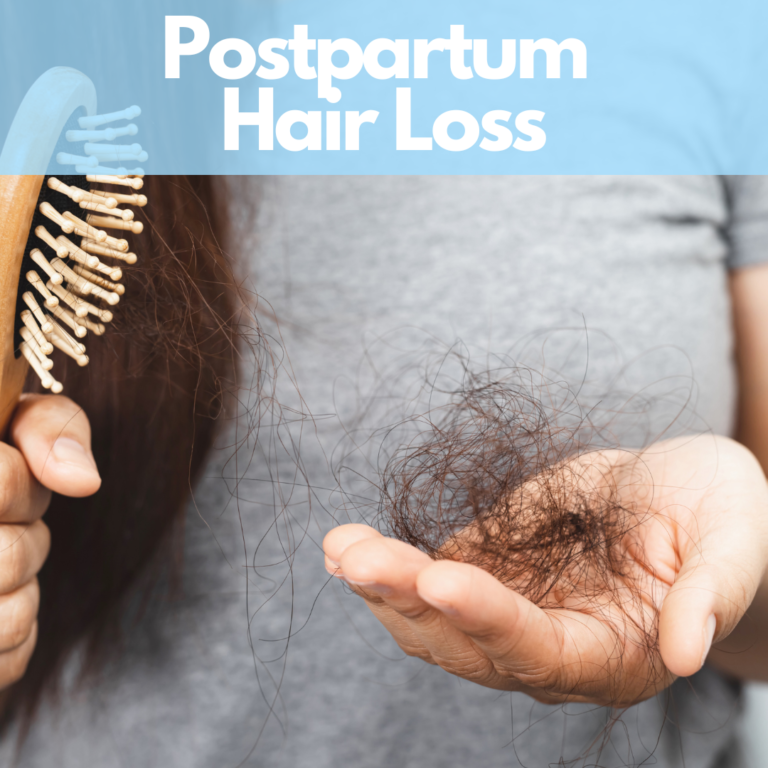
POSTPARTUM HAIR LOSS
Share
Pregnancy is a beautiful journey full of excitement and anticipation, but it also causes physical changes in a woman’s body. Postpartum hair loss is one such change that many new mothers encounter.
Many new mothers have noticeable hair loss a few months after giving birth. This is common and does not indicate actual hair loss. This issue is referred to by dermatologists as excessive hair shedding.
What are the signs of postpartum hair loss?
Postpartum hair loss usually starts three months after childbirth and peaks at six months. Excessive shedding is the most prominent symptom, with clumps of hair falling out when brushing, showering, or while sleeping on a pillow. While this condition might be frightening for new mothers, it is important to realize that it is just temporary and is part of the body’s natural adjustment following pregnancy.
How to cope with Hair loss
- Patience and Positivity: The first step in dealing with postpartum hair loss is to be patient and optimistic. Recognize that this phase will pass and that your hair will eventually return to its usual growth pattern. Stress can aggravate the problem, so try to lessen worry by practicing relaxation techniques such as yoga, meditation, or spending quality time with your baby.
- Gentle Hair Care: During this time, avoid using harsh chemicals, styling products, or excessive heat on your hair. Brush gently and avoid tight hairstyles that pull on the hair, as this can lead to more breaking. Damage can be minimized by using a wide-toothed comb and a moderate shampoo.
- A well-balanced diet: It is essential for overall health, including hair health. Consume vitamin, mineral, and protein-rich foods such as fruits, vegetables, lean proteins, and whole grains. Hydration is also important for healthy hair growth.
- Consider a New Hairstyle: If your hair loss is noticeable, consider getting a new haircut that adds volume and makes your hair appear fuller. Consulting with a stylist who is familiar with postpartum hair loss might help you choose an attractive style.
- Consult an expert: Consult a dermatologist or a healthcare expert if you are concerned about the severity of your postpartum hair loss or if it persists for an extended length of time. They can evaluate your situation and rule out any underlying medical conditions that may be causing your hair loss.
Can my hair loss affect my baby?
Hair loss after childbirth is a common feature of pregnancy and will not harm the baby.
Hair that falls out, on the other hand, can wrap around your baby’s fingers, toes, or other body parts. A hair tourniquet is a rare event that can cause pain and cut off blood circulation. If you notice this, you should unwind the hair, carefully cut it, or contact your baby’s midwife.
When should I see my healthcare provider?
Talk with your provider if you continue to lose hair for more than six months. You might have another condition that causes hair loss, such as iron deficiency.
Postpartum hair loss is a temporary and common experience for many new mothers. Understanding the causes and coping strategies can help ease the emotional burden and allow women to embrace this phase with confidence. Remember that you are not alone, and support from loved ones, as well as professional advice, can be invaluable during this time. With patience, self-care, and a positive outlook, postpartum hair loss can be managed effectively, enabling new mothers to focus on the joys of motherhood while looking forward to healthier hair days ahead.
